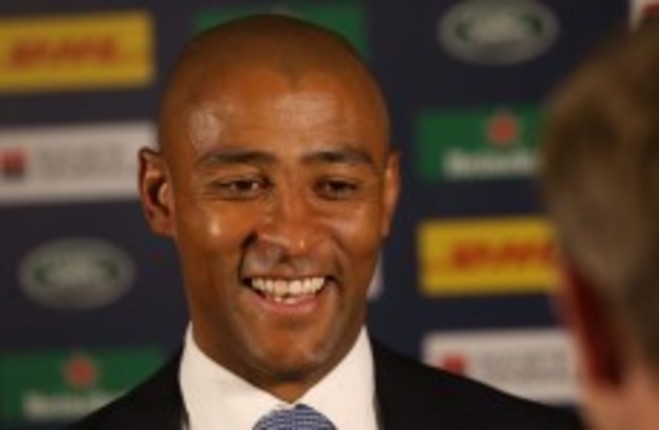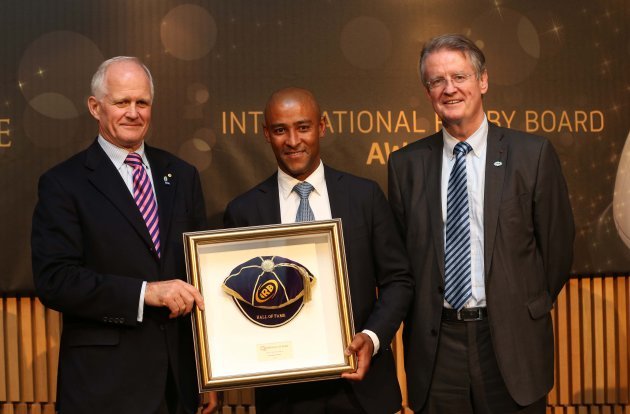ONE OF THE major focuses at the inaugural IRB World Rugby Conference in Dublin this week has, unsurprisingly, been the issue of concussion.
Yesterday morning, IRB’s (International Rugby Board) Chief Medical Officer, Dr. Martin Raftery, led an update in which he outlined the reduction in players who have suffered concussion being allowed back onto the field of play since the introduction of the Pitch Side Concussion Assessment (PSCA) trial (down to 13% from 56%).
Raftery also stressed that the rugby world recognizes the link between repetitive head injuries and dementia, and says the IRB are supporting research in the area.
The main message has been that education is the key to easing the concussion problem in rugby. Not every union or competition is on board with the current PSCA trial, whereby players suspected of having suffered concussion are removed from the field of play for five minutes to undergo testing.
Indeed, ex-Ireland fullback Dr. Barry O’Driscoll recently stood down from the IRB’s medical committee in protest at the decision to implement the PSCA trials, which are now set to continue for another 12 months. Meanwhile, the Six Nations, RaboDirect Pro12 and Heineken Cup have so far opted out of using the PSCA system.
The IRB has a high profile supporter in Wallabies icon George Gregan though, with the 139-times capped (a world record) former scrum-half saying there needs to be wholesale agreement on the PSCA in an effort to improve player welfare.
It’s all about education, it’s a cultural change. It’s about getting people understanding it. I think over time, as we increase the amount of data and get more empirical evidence that backs up the importance of it, I think we’ll see even better results.
“It’s about player welfare, the long-term health of the player. I think the major point is that you’re not looking to the following two weeks, you’re looking further ahead. I know a number of players who had repetitive head injuries and yeah, they had to finish their careers early and they’ve had ongoing issues.
“You don’t want that. When you’re young, you think you’re bulletproof, but you’ll retire one day so you want to be retiring in good health, particularly mentally and in the neurological department.”
Unfortunately, head injuries are part and parcel of a game in which heavy contact is a key component, particularly in the professional arena. Gregan points out that nearly every player he knows has had to deal with concussion or a head knock at some stage.
Gregan was inducted into the IRB’s Hall of Fame last night in Dublin. ©INPHO/Billy Stickland.
The 40-year-old recalls his own encounter with a heavy concussion, and how it highlighted how every person reacts differently to the injury.
“I think most people who have played rugby have had some form of head injury. I remember my one when I got lined out by Zinzan Brooke. It was a Super 12 final and I went off, I didn’t participate for the rest of the game. I think he stayed on and that was when they had the three weeks off for head injuries.
“That was the medical guideline then. We saw each other about three weeks after that and it’s strange how it all works. I had recovered, I was alright and had no issues. But he was still, three weeks after, getting headaches and wasn’t feeling 100%.
All concussions are very different. It’s hard to put a single diagnosis on it. Everyone reacts differently. If you looked at the single incident, I would have been struggling then but not three weeks later, whereas Zinzan played on but was worse three weeks later.”
Gregan’s words perhaps unintentionally point to a weakness in the IRB’s PSCA trial. Sometimes five minutes just isn’t enough to calculate the longer term effects of a head injury. As Brooke’s example shows, the real damage can sometimes take weeks to become apparent.
Still, the Australian legend says that taking the decision completely out of the players’ hands, and putting it into those of the medical experts has been a vital step forward.
“It’s great to see something like this, where the assessment is taken away from the player. When you’re in the arena and you’re inside the game, you just want to stay on the field. The adrenaline is rushing, you probably think ‘I’ll be ok in a couple of minutes.’
“So I think that it’s nice for the PSCA to allow the doctor five minutes to do the assessment. If you’re positive, you’re going to be off the field of play. If you’re negative, you’re back on the field of play. It was an easy thing for the player to wave away the doctor in the past, it’s come a long way.
“As a player, you’re not in a position to make a judgement for yourself.”


